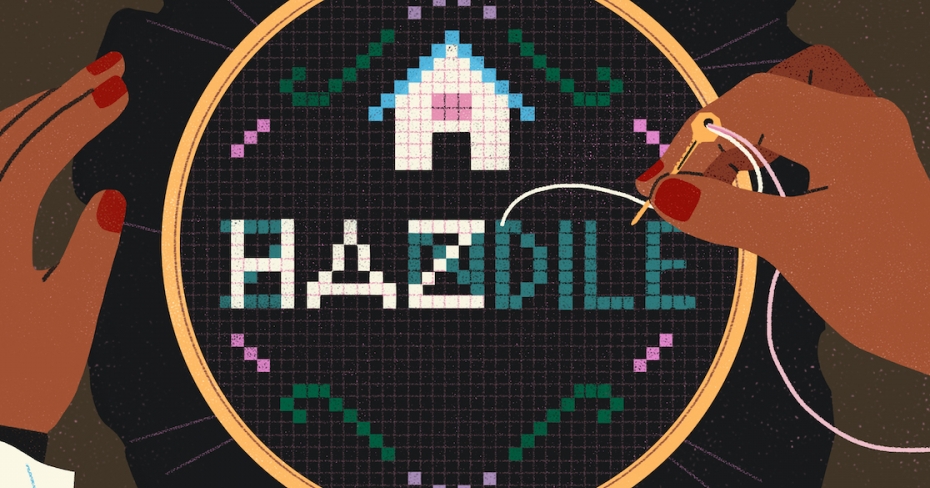I used my white-passing middle name to get an apartment — and it worked
By: Zandile Chiwanza on December 8, 2020
When I decided to move to Toronto for work in the summer of 2017, nothing could have prepared me for the nightmare that apartment hunting would be. In a city of nearly 3 million people, the competition was fierce. Between exorbitant rent costs and greedy landlords, finding a place to rent was rife with challenges. But I quickly learned that as a Black woman born and raised in Zimbabwe, I faced a unique one: my name.
When I called potential landlords to find out if an apartment rental was still available, the conversation would go something like this:
“Hey, I saw your ad online regarding a two-bedroom apartment.”
“Yes, what’s your name?”
“Zandile.”
“Who?”
“Zandile. Z-A-N-D-I-L-E.”
“Sorry, the apartment is taken.”
The fifth time this happened — yes, I counted — I asked my friend, whose name is white-passing, to call the same listing. As soon as she introduced herself, the landlord asked her when she would like to see the apartment.
Sadly, this didn’t surprise me. I had a hunch that my ethnic-sounding name was getting in the way of securing viewings. But to obtain confirmation of that suspicion left me feeling discouraged and frustrated. Even though the Ontario Human Rights Commission prohibits landlords from discriminating against prospective renters based on race or ethnic background, they’ve been known to practise discriminatory tactics toward minority groups.
My experience bears this out. I had all the documentation required to apply — official identification, employment letter, pay stubs, and bank statements — and while my credit score wasn’t the highest, I had a secure job and good references. Yet every time I said it was Zandile calling, I seemed to strike out. What did my name or ethnicity have to do with being a good tenant?
While my name holds a special meaning in my culture, it was holding me back in the Toronto rental market
The name Zandile originates from the Nguni languages of Southern Africa. The literal translation means growth or increase in terms of quantity. Grammatically speaking, the name is unisex, but customarily it's only used when naming girls. I am the second and youngest of two daughters. In my culture, when girls get married, the family receives a dowry. My name is a celebration of that custom and a nod to my mother’s tribe of the Ndebele people. “Besides being appealing,” my mother tells me, “I love Ndebele names. And I handpicked yours.”
While my name holds a special meaning in my culture, it was holding me back in the Toronto rental market. So after my friend seamlessly secured the viewing I’d been denied, I had an idea. Why not use Hazel, my middle name, as I continued searching for apartments? There would probably be less back and forth as to who was inquiring, and at the very least, I thought, I would get a chance to view an apartment.
As soon as I started using Hazel on my rental applications and in calls to inquire about listings, my apartment hunting experience noticeably improved. Viewings began to flow, and the quality of responses went from awkward conversations to polite exchanges.
There's little to no data surrounding name discrimination in the housing industry in Canada, but according to a study published in the Journal of Applied Social Psychology, names prime stereotypes and elicit different treatment of individuals because of the associated expectation attached to them. The research also suggests that private landlords exhibit more unconscious name bias than commercial landlords because they have fewer resources to spend on getting up-to-date legal advice and training. They may also feel freer to make decisions according to personal prejudices than those who are acting on behalf of a company.
Name bias doesn’t just exist in the rental market, either. There are several reasons people “Whiten” their names, particularly in the job market. A 2016 study titled Whitened Resumes: Race and Self-Presentation in the Labor Market revealed that potential employers might never call you for an interview if your name sounds foreign. Knowing this, some people opt to omit their ethnic-sounding name from their application to increase their chances of landing an interview. I know I have. In the past, when I needed to put something more palatable on my resume or name badge at work, out of habit I always used Hazel.
I cycle between two names because people say they can't form their lips to pronounce three syllables — the same people who have no difficulty pronouncing Tchaikovsky or Schwarzenegger
In fact, from as early as the age of four, I’ve used my white-passing middle name as my first for the convenience of others. All because a teacher told me that people couldn’t pronounce Zandile. I grew up in a small farm town and went to school with predominantly white students. Since the teacher said Hazel would be easier for others to pronounce, I went with it. I was too young to question or challenge the teacher, and my parents weren't all that concerned about it either. (That name was on my birth certificate, after all). So at school, I went by Hazel and at home, I was Zandi.
It wasn’t until I got to high school when the headmistress called me to her office to verify my full name.
“Is it Zandile or Hazel?” she asked me.
“It’s both,” I replied.
She and her secretary looked confused.
“Which one do you prefer?”
“I don’t know,” I said. “Some people have difficulty pronouncing my first name, so I go by both.”
How ridiculous did that sound? I cycle between two names because people say they can't form their lips to pronounce three syllables — the same people who have no difficulty pronouncing Tchaikovsky or Schwarzenegger. I knew which name was easier to use, but I’d never really thought about which name I actually preferred before that day.
Admittedly, Hazel has served me well over the years. I credit it to helping me land my current apartment. Knowing that at least 12 other people were scheduled to see the place after me, I showed up to the viewing with a folder containing all the required documents, including a cover letter on why I was the ideal tenant — just in case I had the opportunity to apply on the spot. All the landlord had to do was call my references, which she did the very next day. I had to give them the heads up that she’d be asking for Hazel and not Zandile, because they all knew me by my first name. A few days later, she called to tell me that the apartment was mine.
I bumped into my landlord recently after returning from a brisk afternoon walk. I was cold and had no intention of catching up with her, which we often do when we see each other.
“Hi Hazel,” she said.
“Hey!” I called out to her. “Enjoy your evening.”
Of course, my landlord knows by now what my first name actually is. During the application process, she saw all of my official government documentation. And once I signed the lease, I had to clarify to her in writing which of my names comes first. But we’ve never had a conversation about why I used my middle name instead of my first to communicate with her in the first place — or why she continues to call me by it.
For now, that’s okay. I’ve fully processed and healed from my experience, so I don’t feel a strong need to address it. Still, every time she says “Hi Hazel” I can’t help but remember the lengths I had to go through to secure my apartment.
Illustration by Jeannie Phan.


